We map out all the episodes that reveal the dark and terrifying world hidden beneath Twin Peaks quirky exterior.
Note: This article contains spoilers for the entireTwin Peaksseries.
Twin Peaksis remembered for coffee and cherry pie.
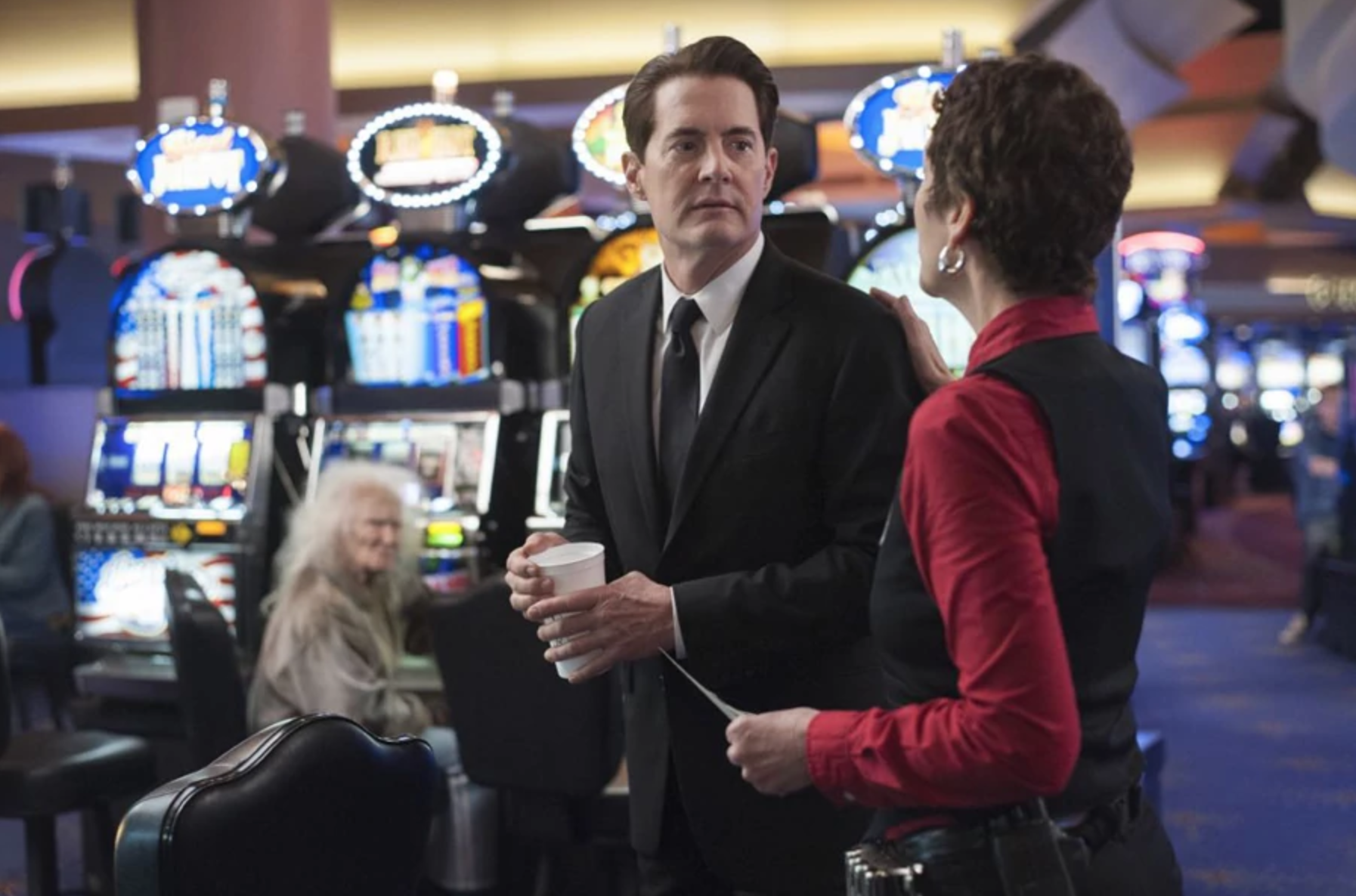
Thats fine and dandy; its an easy pop culture touchstone, a representation of the series quirkier side.
This is the stuff that excites the hardcoreTwin Peaksfans.
This dark side ofTwin Peaksfeatures a vastly complicated mythology that is heavily open to interpretation.
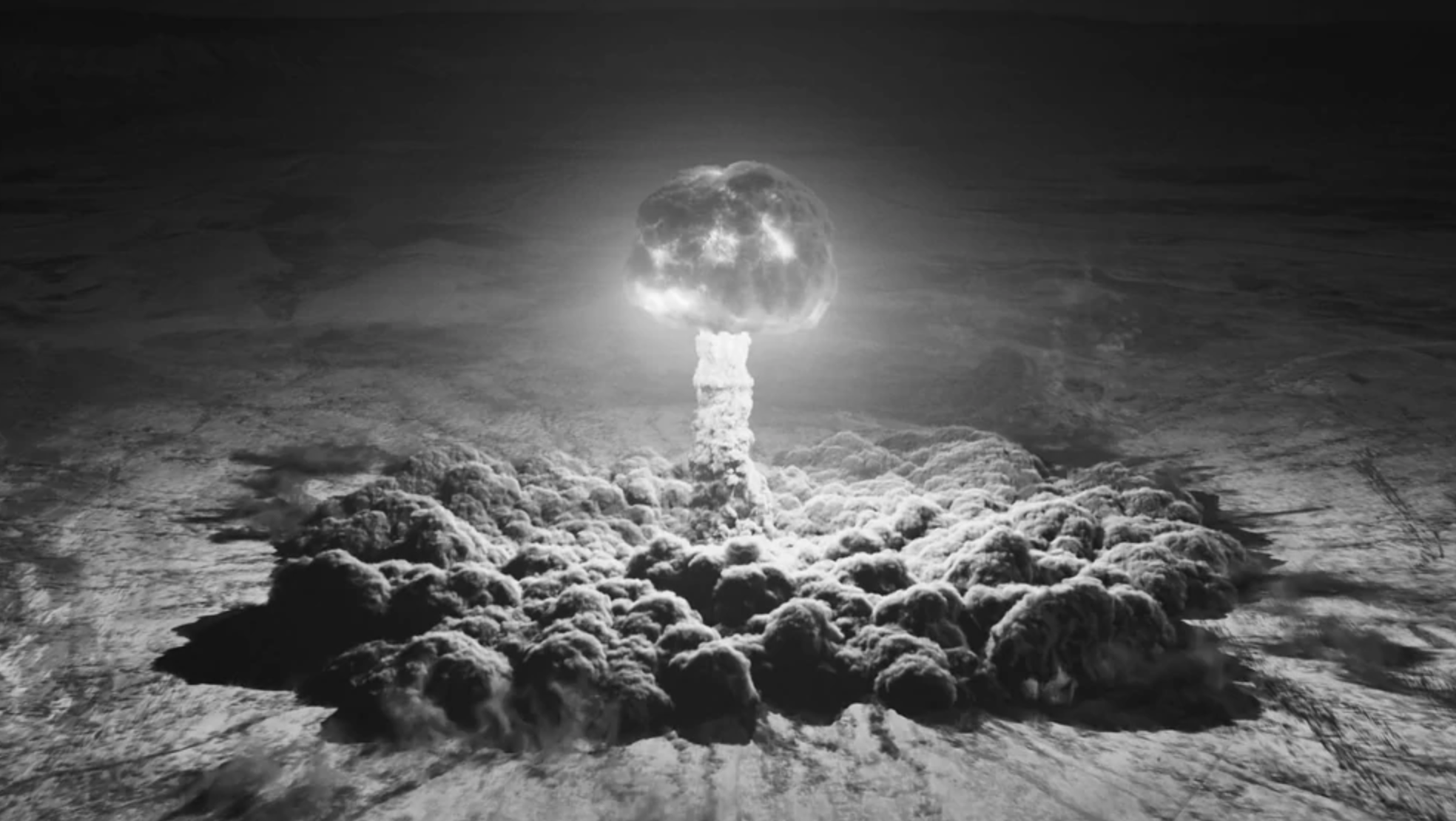
The killer BOB and Mike.
The White and Black Lodges.
The Man From Another Place.
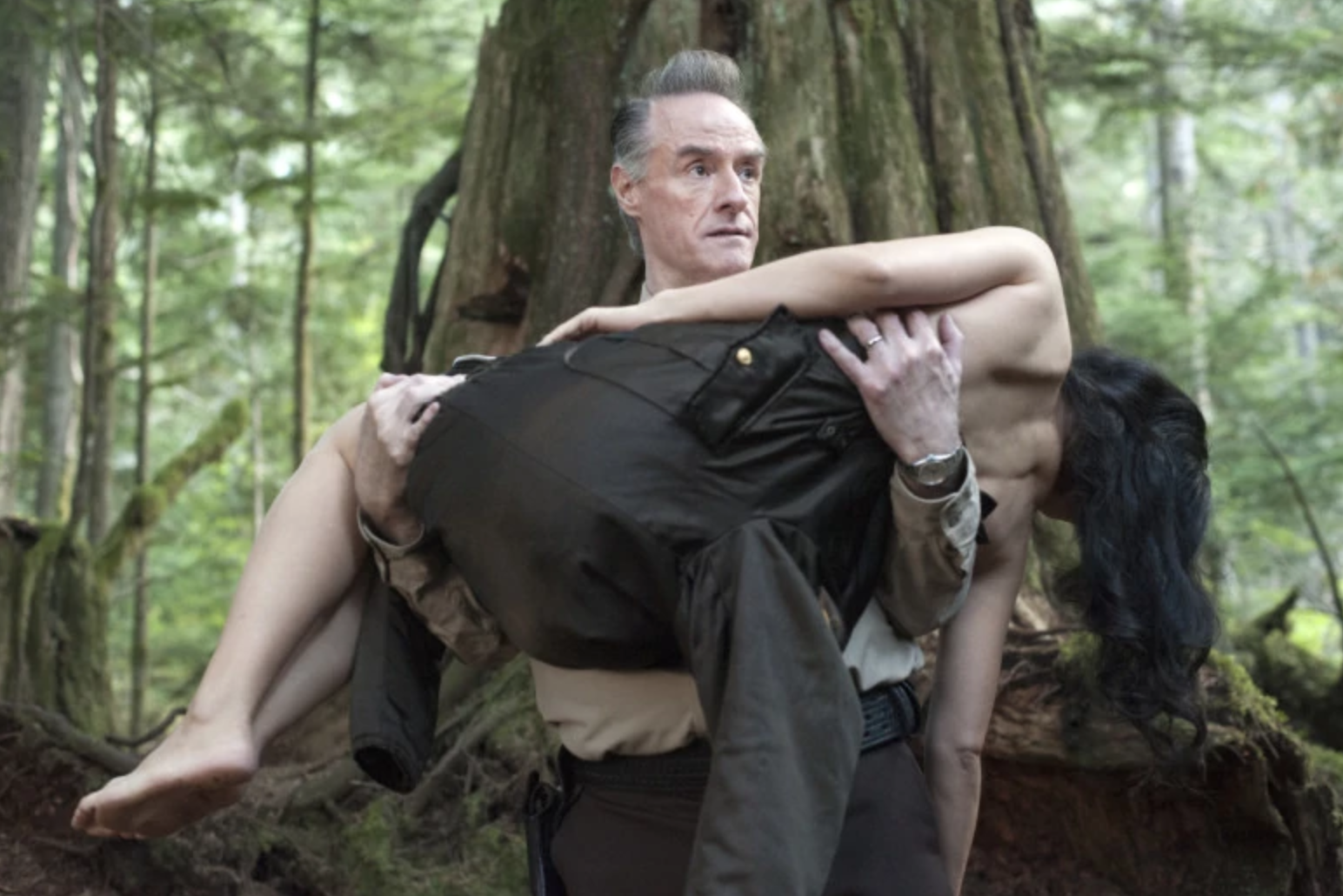
David Bowie in a tea pot.
No one can quite agree on what it all means.
A literal reading of it opens the door to supernatural forces at work.
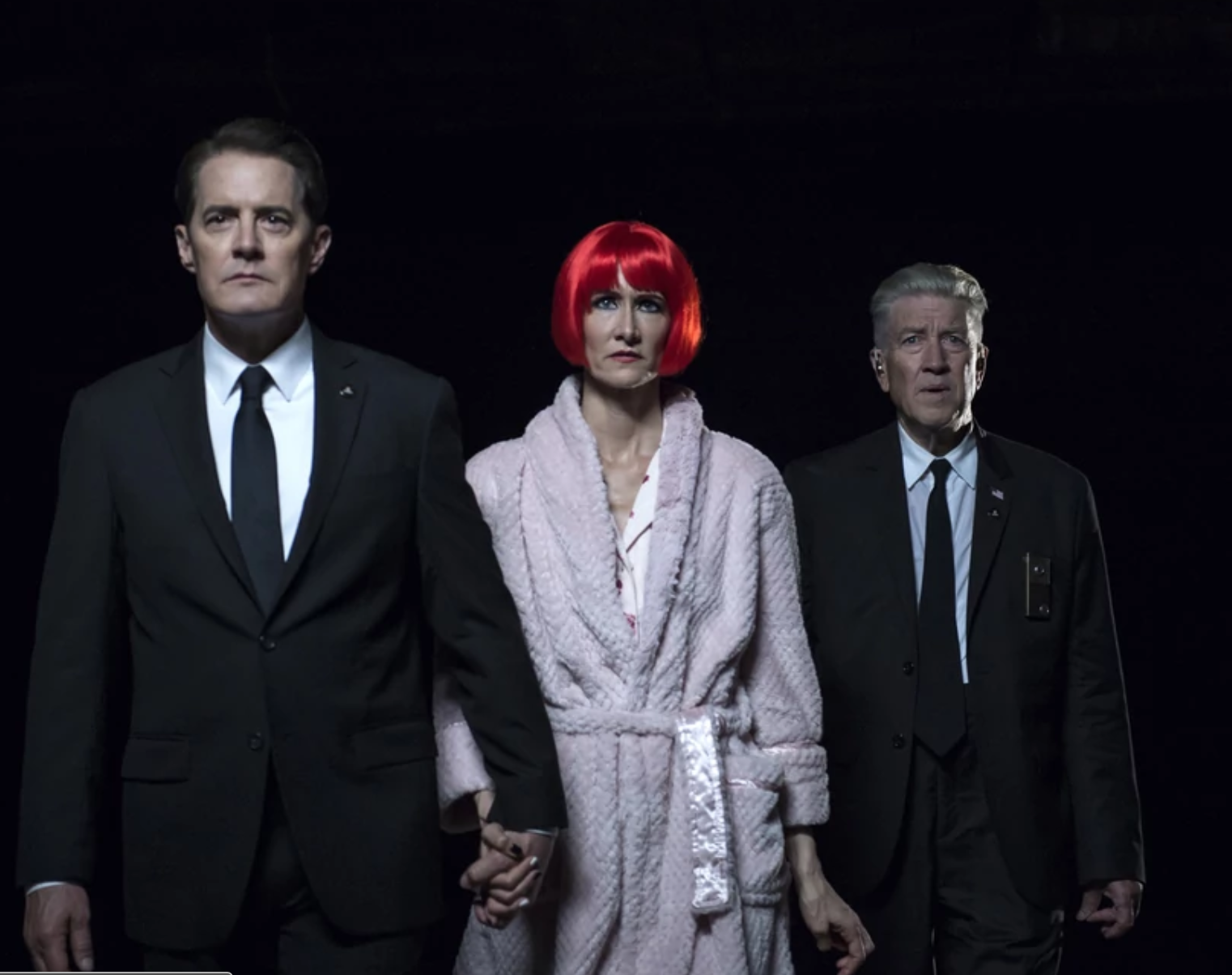
An evil spirit has possessed Leland and forced him to rape and murder his own daughter.
BOB is only a representation of the evil men do.
He is not a literal spirit but a way for Laura to process the horror shes gone through.
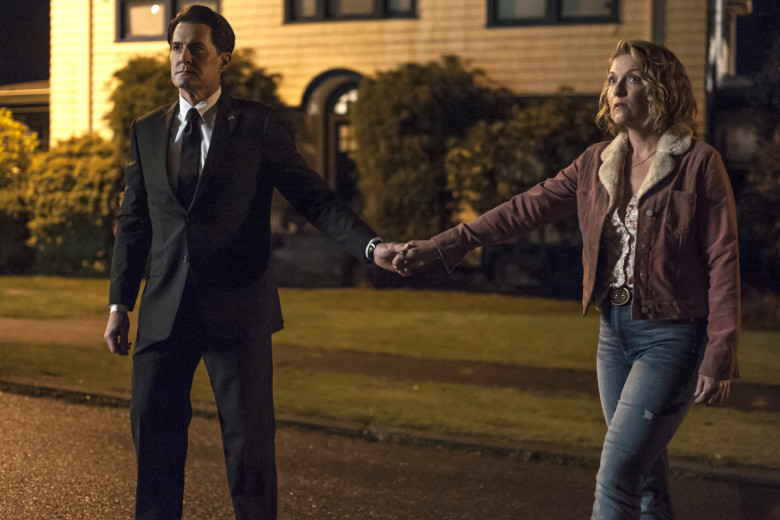
With that said, some of these episode suggestions only contain a scene or two that reference the mythology.
When those are included, its because theyre extremely important.
Now lets pull back the curtain and step into the Red Room, shall we?
Then for season tree we use the given episode part numbers.
This is the one with Coopers famous dream, which was repurposed from the ending European pilot.
BOB, as presented here, could merely be representative of the faceless killer Cooper has yet to identify.
All of these elements that seem disparate soon become critical and more rigidly defined as the series went on.
Episode 13: Demons
Yep, it takes this long to get back to the mythology.
(The Giant appearance in the season two premiere is otherworldy, but doesnt tell us much.)
Mike and BOB are spirits, inhabiting people for their own purposes.
It can also retroactively assume that the house of wood Mike describes here is actually the Black Lodge.
A house with many rooms, a different soul in each one?
Go watch the last episode of the series and it isnt hard to make the connection.
Mikes speech also brings a religious side to whole thing.
Few can see BOB, only, the gifted and the damned.
Throw in the talk about seeing the face of god and these could very easily be angels or demons.
Or perhaps, thats the only way we can understand them.
Its the final scene however that gives the audience the most to chew on.
Cooper, Albert, Truman, and Briggs all take a stab at make sense of what BOB is.
Cooper seems to fall on the side of him being real.
Truman cant believe it, he can only imagine Leland was completely insane.
It isnt some spirit or supernatural or force, as Albert sums up,
Maybe thats all BOB is.
The evil that men do.
Its the best way of trying to make any reasonable sense out of what theyve just seen.
That BOB isnt a spirit but just a representation, an idea given form in an insane mans head.
Any supernatural forces at work are well beyond our comprehension.
Theres so much out there that we havent even scratched the surface on.
It is some mens fate to face great darkness.
We each choose how to react.
If the choice is fear, then we become vulnerable to darkness.
We also get our first mention of the Lodges; here its the White.
When a light, possibly the White Lodge itself, takes Briggs there is a figure standing there.
Is it a being, like BOB, from the White Lodge?
That the White Lodge is, a place where the spirits that rule man and nature here reside.
Then comes the bigger bombshell that turns the concept of the Lodge on its head, the Black Lodge.
Hawk describes it as the shadow self of the White Lodge.
Like Briggs speech, these are helpful clues for interpreting the final episode.
If hes part of these Lodges, he has to be something real, right?
Earles interests dont lie there though.
He is seeking the Black Lodge and it sounds like a physical place from the way he describes it.
He wants to find it.
As the series goes on these supernatural forces are becoming less and less out of reach and more attainable.
Earle describes them as evil incarnate.
Compare this to the warnings Cooper has received about confronting the Lodge with imperfect courage.
It should also be noted that when Briggs seemingly speaks gibberish at Earle, hes actually speaking backwards talk.
Backwards talk that reveals his words to be, that gum you like is coming back in style.
This was of course spoken to Cooper in his first dream.
Do these spirits live in both lodges?
Do they have doppelgangers?
Episode 28: Miss Twin Peaks
This is only a small detail but its very important.
This of course refers to the Lodges.
So how is Cooper able to get in unless he is also fearful?
That would mean he has imperfect courage and would explain what happens in that episode.
Now it could be fear or love fire up the doors but the use of and is telling here.
This episode doesnt invalidate what weve learned, but it doesnt get bogged down in the details.
Instead, Coopers journey to the Lodge is one of symbolism and ripe for interpretation.
The whole place is filled with beings that hold special significance to Cooper.
Are these the souls of those people?
Are they shadow selves?
What do Lauras words mean?
What about the ever-changing cup of coffee Cooper is given?
What do the various rooms represent?
We see the transfer of souls in the Black Lodge, which are represented by fire.
Does this give some meaning to fire walk with me?
Or is Cooper even in the lodge anymore?
Whats the deal with that eyeless woman?
Why is Major Briggs in the void?
Why does Dougie look just like Cooper?
Is it another part of Cooper?
Has he always existed?
Season 3: Part 8
Well okay, here Lynch topped himself forever.
Well, a lot of questions anyway.
Did the bomb create BOB?
Whats up with that frog moth?
Was Laura created by the Giant and that woman?
Were they in the Black or White Lodge?
What about the Woodsman just murdering all those people?
Lots of questions with little answers but if youre into the mythology ofTwin Peaksthats what you live for.
Season 3: Part 14
Its all about what happens with Andy here.
His scene with the The Fireman (so is it not The Giant anymore?
and his eventual rescue of that woman lead to all kinds of theories.
What about that location was so important that Major Briggs had to leave a clue about it?
Does Andy now have some connection to the Lodges?
Whats up with that portal?
Is that somehow different than the entrance to the Black Lodge we saw in the original seasons?
Again, no answers here but more imagery to play around with.
Season 3: Part 17
It all comes down to this…
The final confrontation with BOB and then Cooper somehow rewrites history?
Still, Cooper messing with time does have some precedent.
So does that mean time was already changed?
Is there a version of the timeline where Laura didnt write that the Good Dale was in the lodge?
Does her saying that actually erase Annie from ever having entered?
What about Cooper changing the timeline so Laura was never murdered?
Is that the best thing for the universe?
How was he able to do this?
Did he enter back into the lodge?
Did he ever leave?
Whatever the case may be, theres no denying that time was changed here.
Laura is no longer Laura.
Did Cooper do the right thing?
Is BOB still present in this timeline?
Does Cooper have his Lodge powers?
Its all very unclear.
The third season barely answered any questions and blew initiate the whole mythology of the series.
BOB, Mike, the Red Room, and the Man From Another Place.
Its fun to watch this alternate ending and see just howTwin Peaksmythology evolved from it.
Twin Peaksmythology is not an easy one to pin down.
Season three blew it all out of the water.
What does it all mean now?
Hard to say but theres a ton to work with.
The episodes Ive listed here are only the big pieces of the mythology.
If you carefully watch the whole series, smaller pieces will reveal themselves.
Hopefully this list will help you get started.
Big thanks toIn Twin Peaksfor their screencap archive of the series.